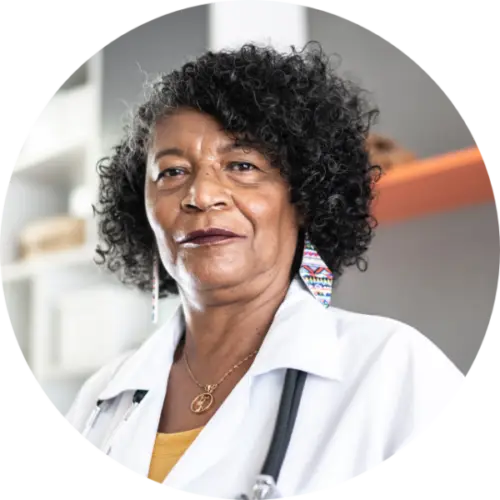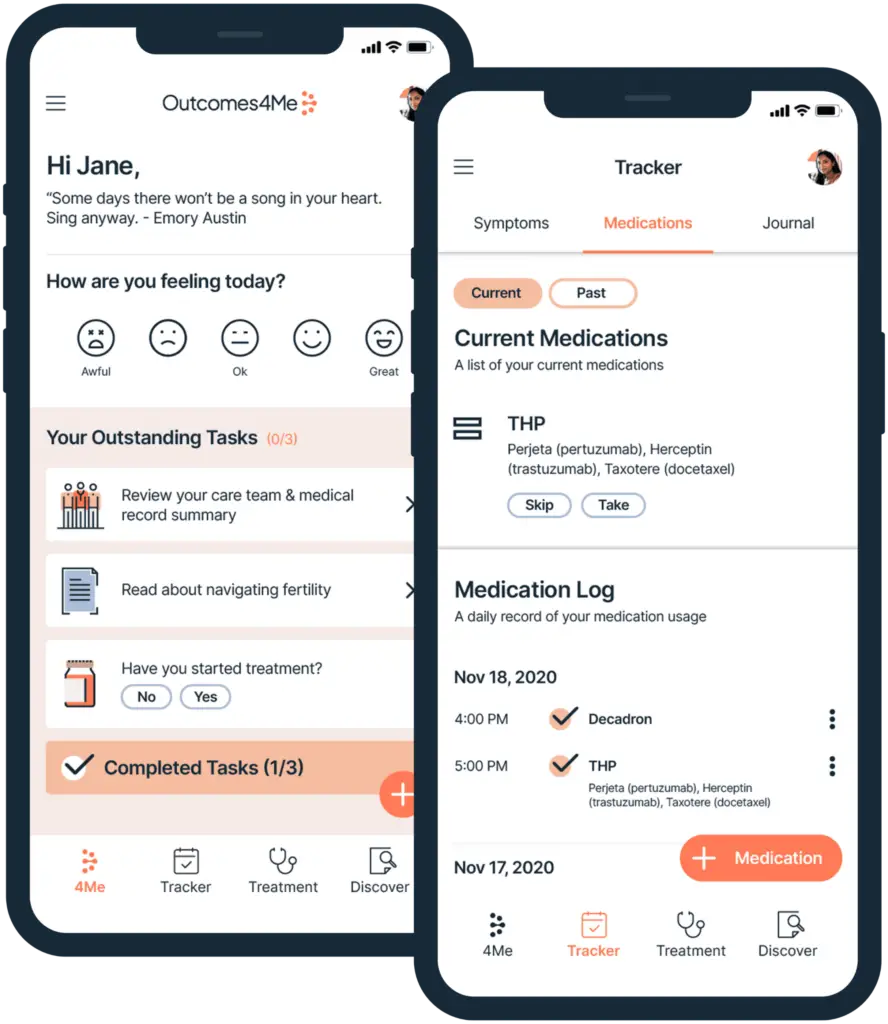Outcomes4Me is a 2024 Fast Company World Changing Idea! Learn more >>
Suzanne Garner
Cancer Survivor, Outcomes4Me User

We’re the only breast cancer app that integrates with the NCCN Clinical Practice Guidelines in Oncology (NCCN Guidelines®), from the not-for-profit alliance of 33 leading cancer centers. The NCCN Guidelines® include comprehensive guidance related to all FDA-approved treatment options.
We gather breast cancer treatment recommendations typically meant for oncologists and use Artificial Intelligence (AI) to translate that information so you can understand it, putting you in control. With this knowledge, you can feel empowered to make the best medical decisions with your care team.
With our free breast cancer app, you’ll get:


Gain direct access to personalized treatment options so you can have more informed conversations with your care team.

Rely on us to help your patients get access to the best breast cancer care and resources, and save time in your day. We’re here to help and won’t ever get in the way.

Accelerate patient access to your treatments and expand the reach of your breast cancer research and clinical trials.
Get all the information you need to take a more active role in treating your breast cancer.












The first symptoms of breast cancer may include:
The stages of breast cancer are:
Those most likely to get breast cancer are individuals who:
We use cookies and other tracking technologies to offer you a better experience, personalize content and ads, enable social media functionality and to analyze our performance and site traffic. By clicking ‘Accept’ or closing this banner, you understand your information may be disclosed to our third-party partners. For more information, visit our Privacy Policy.
By clicking the “Subscribe Now” button you’re agreeing to our Terms of Service and Privacy Policy.